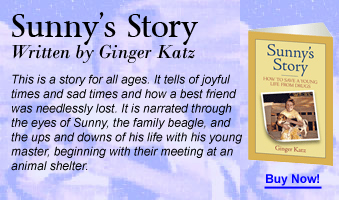
Son’s death made her an activist: Norwalk woman tells of drug use tragedy
BY RUTH EPSTEIN
November 5, 2015

Ruth Epstein Republican-American Virginia ‘Ginger’ Katz speaks to students at Sharon Center School during a recent assembly. Katz, whose son, Ian Eaccarino, died from a drug overdose at age 20, is the creator of the Courage to Speak Foundation, formed to try to prevent families from going through a similar tragedy.
SHARON — Virginia “Ginger” Katz’s son died young, but his story is being used to save others.
The Norwalk resident was at Sharon Center School last week to talk to parents one evening, and sixth- to eighthgrade students the next day, about her Courage to Speak Foundation.
Her story is becoming all too familiar. Katz’s son, Ian Eaccarino, was 20 when he died from a heroin overdose in 1996. Still visibly shaken by the tragedy nearly 20 years later, she said she feels compelled to relive the circumstances to try to prevent others from the same fate.
Katz established the foundation shortly after her son’s death and has traveled around the country telling her story. The foundation holds seminars and programs for both students and parents. She also has written a book, “Sunny’s Story,” from the perspective of the family’s rescued beagle, who witnessed Ian’s trials and tribulations.
During her presentation, Katz recounted her son’s downward spiral, which began early in high school when he started smoking marijuana.
“He said he didn’t like grass and I wanted to believe him, but I knew it wasn’t true,” Katz said.
When he was found with the drug, Ian was taken to the local police station, but they let him go home. Katz believes the police officer was one of the first to enable him — to allow that behavior to continue without any consequences.
Katz and her husband, Larry, Ian’s stepfather, noticed other changes in the teen. He distanced himself from them, no longer had an interest in sports, and became more aggressive and argumentative.
HER SUSPICIONS RISING , Katz asked their doctor to take a urine specimen from him, but Ian refused.
“Moms know,” she told the students.
When Ian did submit to the test and it came back clean, she later learned he’d used a sample from his friend’s baby sibling.
There were periods throughout his high school days that Ian appeared clean. But during his senior year, he received a gift of a Jeep. One night, the vehicle was fire bombed while parked in the family’s front yard.
“He was in over his head by then,” Katz said. “Drugs and violence go together. He was being threatened because of his drug activity.”
Ian continued his drug use in college. He got in trouble for being drunk and involved in a brawl, but the dean didn’t have him arrested. He made him do community service. The dean was another enabler, she said. He later used cocaine and then became hooked on heroin as soon as he used it. He was ingesting it five times a day, and if he stopped, he got violently ill.
Ian’s biological father entered him into a rehab facility, but he checked himself out without telling his dad. Once again, they thought he was making progress when he began taking his studies seriously.
Katz started attending Al Anon classes, where she learned “I didn’t cause the problem and I couldn’t control it.”
At one point, she said, her “son broke her heart when he said, ‘Mom, I’m unlucky. It’s not your fault.’ And I couldn’t help him out.”
DURING HIS LAST SUMMER , Ian came back to live with her. He was planning to see a doctor the next day. He went down to his bedroom and apparently took drugs. Katz found him dead in the morning.
The students sat and listened attentively as Katz spoke. Throughout her presentation, she offered words of advice.
“Each and every one of you are innocent and you will be asked to use,” Katz told them. “The majority of kids don’t use and they make good decisions. It’s important to have passion in your lives for something to do. You have to make healthy decisions. You have to protect your body.”
She urged the youngsters to cultivate relationships with three to five adults with whom they can share secrets and have the courage to speak to them.
During a question-and-answer period, Katz was asked when she thought Ian began using drugs. She said he probably started using tobacco or taking cough medicine in eighth grade. As for how he paid for the drugs as he got older, she said he was selling to others. Probed as to why he turned to substance abuse, Katz theorized that while a sensitive person, Ian also was a risk taker.
She added that maybe his parents’ divorce took a greater toll than they realized.
Katz can be reached at gkatz@couragetospeak.org and visit www.couragetospeak.org
“IT’S IMPORTANT TO HAVE PASSION IN YOUR LIVES FOR SOMETHING TO DO. YOU HAVE TO MAKE HEALTHY DECISIONS. YOU HAVE TO PROTECT YOUR BODY.”





